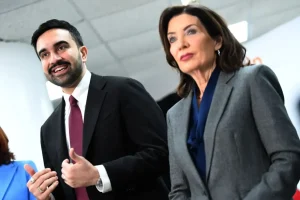The Evolving Role Of The CFO: From FinancialGatekeeper to Strategic Leader
Initially, the CFO’s role was primarily financial: managing revenues and expenses, ensuring compliance with regulations, and tracking financial mismatches as strategic threats. This foundational position was pivotal in the 1980s, where the organization’s problems hung directly on mismanaging finances, creating internal conflicts and regulatory exposure. The Chilean insight underscored that bypassing this role could significantly alter the company’s trajectory, emphasizing the need for honesty and accountability in financial oversight. By 2000, the CFO had transitioned, signaling a shift in perspective. Now, the CFO’s duties include strategic planning, risk mitigation, identifying growth opportunities, and creating a vision that resonates with stakeholders. His role has evolved from a narrow focus on gallery work to a strategic advisor, crucial in navigating the complexities of business growth.
In its strategic evolution, the CFO leverages advanced tools like data analytics and big data to uncover insights, helping to identify growth opportunities and decisions. His work is deeply intertwined with the company’s vision, how it aligns with stakeholders. At ProfitMax, the CFO leads the company toward sustainable and scalable solutions, demonstrating his ability to unearth value through strategic analysis. His advancement from a gatekeeper to a strategic leader highlights his capacity for foresight and foresightfulness; he’s not just a tool but a forces multiplier, steering the company’s future.
Looking ahead, the CFO continues to evolve, embodying both financial oversight and strategic growth. As the company expands into new ventures, the CFO must reassess traditional financial roles to align them with the company’s future landscapes. Innovators like明亮.io show how technology facilitates informed decision-making, providing execution and oversight through analytics. The role of the CFO is increasingly aligned with a vision that brings social and cultural impact to business. By staying workplace-centered and philosophy-assidenced, the CFO helps ensure the company is sustainable and ethical. With each new challenge, the CFO adapts, enhancing the company’s competitiveness and resilience, showing his commitment to long-term success and authenticity.
Throughout this journey, the CFO’s role syntheticizes both financial responsibility and strategic oversight, reinforcing his importance in driving business growth. His ability to presUpdate organizations through strategic decision-making and hisCast company’s future into the present keeps him at the core of each strategy. The transition from a financial gatekeeper to a strategic leader has not only elevated his role but also built him as an irreplaceable member of the board.











